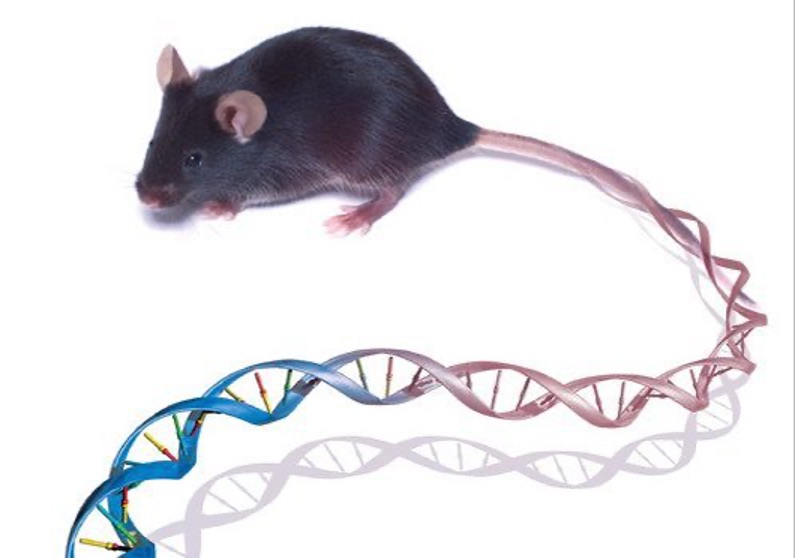


A recent article published in Science translational Medicine by Spector et al. set out to determine the contribution of fundamental research to the generation of new medicines. By tracking the scientific origins of some of today’s most “transforming” FDA-approved drugs, including medicines such as TNF blockers, ACE inhibitors, kinase inhibitors and others, they find that approximately 80% of the 28 medicines studied, originated as basic research discoveries by scientist seeking to understand a biological process or disease. It is noteworthy, that the path to drug discovery that starts with basic scientific research more often than not includes fundamental research work performed in mouse models of disease that provide invaluable insights and proof of concept on in vivo disease mechanisms and drug activity. One such example of the invaluable contribution of animal disease models in the path to drug discovery, is the human TNF transgenic Tg197 arthritis mouse model that in 1991 provided the first in vivoevidence that deregulated TNF production was causal to chronic polyarthritis (Keffer et al.).

Tg54531 is a transgenic mouse with transmembrane human TNF deregulated expression resulting in the spontaneous development of arthritis pathology that closely resembles human rheumatoid arthritis.
The mice develop arthritis with 100% penetrance and provide a fast in-vivo model for evaluating human therapeutics targeting rheumatoid arthritis.
The Tg5453 mouse model was successfully used in establishing the therapeutic efficacy of Remicade®, the first anti-TNF therapeutic to be successfully applied in the clinic, and is currently used for screening anti-rheumatoid candidate drugs.

The TNFΔARE mouse model develops arthritis pathology together with Crohn’s like ileal inflammation with 100% penetrance. The co-occurence of two inflammatory pathologies provide a reliable in-vivo model for evaluating therapeutics targeting both pathologies. Read More

Biomedcode’ s R&D team participated in the activities of the 1st BSRC Al. Fleming Retreat. R&D projects were presented in three posters and scientific results were discussed with BSRC Al. Fleming scientists. Biomedcode’s overall activities were presented in a regular talk. Read More

The Tg197 mouse model was successfully used in establishing the therapeutic efficacy of Remicade®, the first anti-TNF therapeutic to be successfully applied in the clinic, and is recommended by the FDA for screening potential anti-rheumatoid candidate drugs.
Tg197 is a transgenic mouse overexpressing human TNF resulting in the spontaneous development of arthritis whose pathology closely resembles human rheumatoid arthritis. The mice develop arthritis with 100% penetrance and provide a fast in-vivo model for evaluating human therapeutics targeting rheumatoid arthritis.

Biomedcode has been selected to participate in the Health Care and Medical Technologies Mission to Korea (March 12-14 2019) supported by EU Gateway.

Biomedcode presents an abstract entitled “Characterization Of Novel Humanized Il-17 Preclinical Platforms For The Efficacy Evaluation Of Anti-Human Il17 Therapeutics” in the 39thEuropean Workshop for Rheumatology Research that takes place February 28-March 2 in Lyon France.

Patients with rheumatoid arthritis and spondyloarthritis show higher mortality rates, mainly caused by cardiac comorbidities. The TghuTNF (Tg197) arthritis model develops tumour necrosis factor (TNF)-driven and mesenchymal synovial fibroblast (SF)-dependent polyarthritis. Here, we investigate whether this model develops, similarly to human patients, comorbid heart pathology and explore cellular and molecular mechanisms linking arthritis to cardiac comorbidities.
Published in Annals of Rheumatic Diseases 2018 Jun;77(6):926-934. doi: 10.1136/annrheumdis-2017-212597.

Biomedcode scientists coauthor two publications, one in Annals of Rheumatic diseases and one in JCI insight, showing that Tg197 and TNFΔΑRΕ mice develop heart valve pathology sharing common mesenchymal cell-specific aetiopathogenic mechanisms with arthritis. Read More
